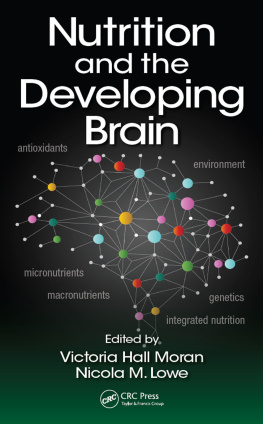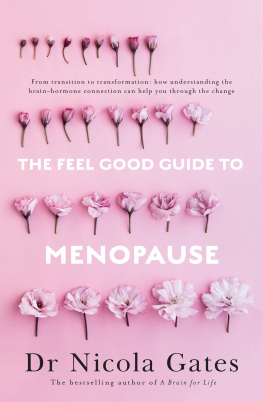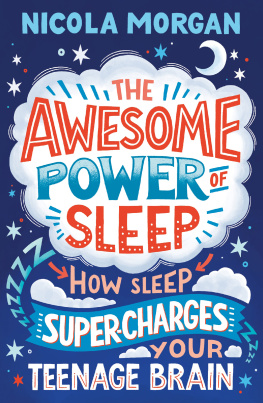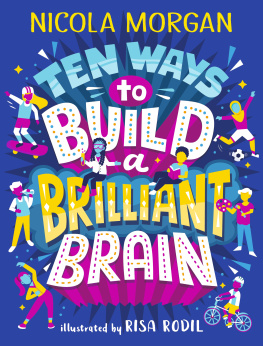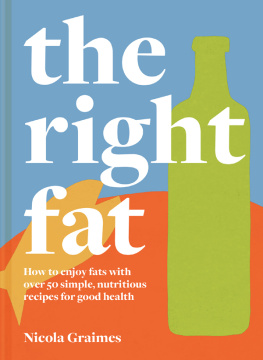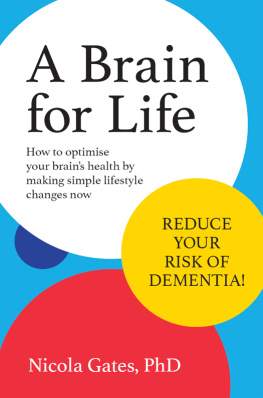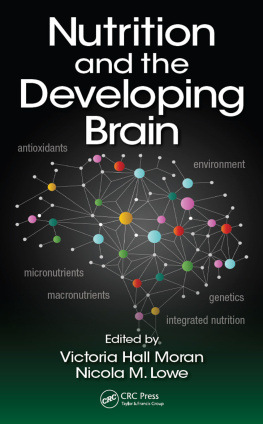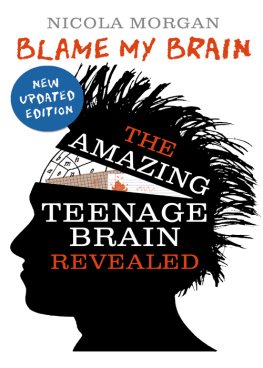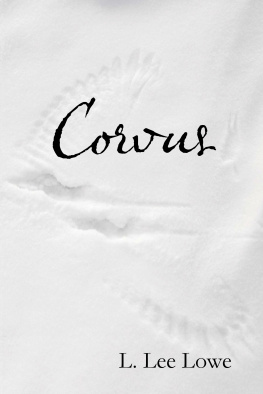Lowe Nicola - Nutrition and the developing brain
Here you can read online Lowe Nicola - Nutrition and the developing brain full text of the book (entire story) in english for free. Download pdf and epub, get meaning, cover and reviews about this ebook. City: Boca Raton, FL, year: 2016, publisher: CRC Press, genre: Romance novel. Description of the work, (preface) as well as reviews are available. Best literature library LitArk.com created for fans of good reading and offers a wide selection of genres:
Romance novel
Science fiction
Adventure
Detective
Science
History
Home and family
Prose
Art
Politics
Computer
Non-fiction
Religion
Business
Children
Humor
Choose a favorite category and find really read worthwhile books. Enjoy immersion in the world of imagination, feel the emotions of the characters or learn something new for yourself, make an fascinating discovery.
- Book:Nutrition and the developing brain
- Author:
- Publisher:CRC Press
- Genre:
- Year:2016
- City:Boca Raton, FL
- Rating:5 / 5
- Favourites:Add to favourites
- Your mark:
- 100
- 1
- 2
- 3
- 4
- 5
Nutrition and the developing brain: summary, description and annotation
We offer to read an annotation, description, summary or preface (depends on what the author of the book "Nutrition and the developing brain" wrote himself). If you haven't found the necessary information about the book — write in the comments, we will try to find it.
Nutrition and the developing brain — read online for free the complete book (whole text) full work
Below is the text of the book, divided by pages. System saving the place of the last page read, allows you to conveniently read the book "Nutrition and the developing brain" online for free, without having to search again every time where you left off. Put a bookmark, and you can go to the page where you finished reading at any time.
Font size:
Interval:
Bookmark:

Nutrition and the Developing Brain
Nutrition and the Developing Brain
Edited by
Victoria Hall Moran
Nicola M. Lowe

CRC Press
Taylor & Francis Group
6000 Broken Sound Parkway NW, Suite 300
Boca Raton, FL 33487-2742
2017 by Taylor & Francis Group, LLC
CRC Press is an imprint of Taylor & Francis Group, an Informa business
No claim to original U.S. Government works
Printed on acid-free paper
Version Date: 20160614
International Standard Book Number-13: 978-1-4822-5473-0 (Hardback)
This book contains information obtained from authentic and highly regarded sources. Reasonable efforts have been made to publish reliable data and information, but the author and publisher cannot assume responsibility for the validity of all materials or the consequences of their use. The authors and publishers have attempted to trace the copyright holders of all material reproduced in this publication and apologize to copyright holders if permission to publish in this form has not been obtained. If any copyright material has not been acknowledged please write and let us know so we may rectify in any future reprint.
Except as permitted under U.S. Copyright Law, no part of this book may be reprinted, reproduced, transmitted, or utilized in any form by any electronic, mechanical, or other means, now known or hereafter invented, including photocopying, microfilming, and recording, or in any information storage or retrieval system, without written permission from the publishers.
For permission to photocopy or use material electronically from this work, please access www.copyright.com (http://www.copyright.com/) or contact the Copyright Clearance Center, Inc. (CCC), 222 Rosewood Drive, Danvers, MA 01923, 978-750-8400. CCC is a not-for-profit organization that provides licenses and registration for a variety of users. For organizations that have been granted a photocopy license by the CCC, a separate system of payment has been arranged.
Trademark Notice: Product or corporate names may be trademarks or registered trademarks, and are used only for identification and explanation without intent to infringe.
Library of Congress Cataloging-in-Publication Data
Names: Moran, Victoria Hall, editor. | Lowe, Nicola, editor.
Title: Nutrition and the developing brain / editors, Victoria Hall Moran and
Nicola M. Lowe.
Other titles: Nutrition and the developing brain (Moran)
Description: Boca Raton : Taylor & Francis, 2017. | Includes bibliographical references and index.
Identifiers: LCCN 2016006498 | ISBN 9781482254730 (alk. paper)
Subjects: | MESH: Brain--growth & development | Micronutrients--metabolism | Nutrition Disorders--complications | Nutrition Disorders--prevention & control | Infant Nutritional Physiological Phenomena
Classification: LCC QP376 | NLM WL 300 | DDC 612.8/2--dc23
LC record available at http://lccn.loc.gov/2016006498
Visit the Taylor & Francis Web site at
http://www.taylorandfrancis.com
and the CRC Press Web site at
http://www.crcpress.com
Contents
Bryan Kolb, Celeste Halliwell, and Robbin Gibb
Jenalee R. Doom and Michael K. Georgieff
Lotte Lauritzen, Laurine B.S. Harslf, Louise B. Srensen, and Camilla T. Damsgaard
Stephanie A. Dillon and Heather Ohly
Victoria Hall Moran
Harry J. McArdle, Michael K. Georgieff, and William D. Rees
Andreas M. Grabrucker
Sheila A. Skeaff and Shao J. Zhou
Nicola M. Lowe
Parul Christian and Laura E. Murray-Kolb
Maureen M. Black and Jennifer M. Reid
Adequate nutrition for pregnant women and infants is necessary for normal brain development. Pregnancy and infancy are critical periods for the formation of the brain, laying the foundation for the development of cognitive, motor, and socio-emotional skills throughout childhood and adulthood. Evidence for the critical role of several nutrients on brain growth and development, for example, the relationship between iron and iodine deficiencies in early life and compromised cognitive and motor functions in young children, is now well established. However, more recent research has indicated that many other micronutrients, such as zinc and docosahexaenoic acid (DHA), may also play a role in early brain development. Many of these nutrients are found in high levels in the brain, particularly the hippocampus, the area of the brain involved in learning and memory.
The impact of a lack of both macro- and micronutrients during pregnancy, infancy, and childhood must be understood in the context of multiple biological and environmental influences as well as the interactions between them. For example, low-birthweight infants born into families with high socio-economic status are at a lower risk for poor developmental outcomes than those born into disadvantaged environments. Thus, protective environmental factors can, in some cases, buffer the potential negative effects of undernutrition. Conversely, undernourished children from disadvantaged homes where protective factors are lacking may show more response to nutrition (and other forms of) intervention.
This book takes a unique, integrative approach to the nutritional, environmental, and genetic influences on brain development, including evidence from both animal and human research. Issues surrounding single versus multiple limiting nutrients, critical periods of deficiency, and the impact of a childs early environment of relationships on the developing brain architecture are considered.
In , Professor Bryan Kolb and colleagues introduce key concepts in brain development and how this process is influenced by a wide range of experiences, exhibiting a remarkable capacity for a change in plasticity. They explain that although the impact of nutrition on brain development is well established, little is known about how nutritional changes interact with the many other factors that influence brain development. In particular, we still know little about how nutrition might alter the effects of other negative early experiences such as stress, abnormal parent and peer relationships, and intestinal flora and which mechanism(s) might mediate these effects.
Jenalee Doom and Professor Michael Georgieff outline the neurodevelopmental effects of pre- and postnatal macronutrient deprivation and biological mechanisms of action in . The beneficial impact of macronutrient supplementation, even in the absence of specific micronutrient supplementation, is described. The authors advocate that for populations that are experiencing or are at risk for prenatal or postnatal malnutrition, macronutrient supplementation should be considered, as macronutrient deficiencies are an independent risk factor for poorer developmental outcomes. With appropriate intervention during optimal developmental periods, it has been claimed that millions of individuals who are currently experiencing macronutrient deficiencies may become closer to fulfilling their developmental potential.
Professor Lotte Lauritzen and colleagues summarize the accumulating evidence for the role of certain long-chain polyunsaturated fatty acids (LCPUFAs) in early brain development in . Available evidence, specifically from more recently conducted studies, suggests that docosahexaenoic acid could play a role in brain development in a sex-specific way, although presently, it is not easy to interpret whether an early DHA supply results in improved brain function or merely a change in development. It is possible that DHA may not only affect intellectual abilities as such, but rather certain basic aspects of brain function related to the way in which we interact with the world, for example, personality traits, monoaminergic-controlled emotions, or stress vulnerability, which may be linked to potential effects on attention-deficit hyperactivity disorder (ADHD)-like outcomes. More follow-up studies investigating the effect of early supplementation in later childhood and in different age groups are called for to help determine whether the effects are transient or, in fact, result in real programming effects on brain function later in life.
Font size:
Interval:
Bookmark:
Similar books «Nutrition and the developing brain»
Look at similar books to Nutrition and the developing brain. We have selected literature similar in name and meaning in the hope of providing readers with more options to find new, interesting, not yet read works.
Discussion, reviews of the book Nutrition and the developing brain and just readers' own opinions. Leave your comments, write what you think about the work, its meaning or the main characters. Specify what exactly you liked and what you didn't like, and why you think so.

